Introduction
Science lessons are a journey of discovery of the natural world that can feed our students’ enquiring minds, helping to satisfy the natural curiosity with which we are born.
Our students view and value science as both a body of knowledge and a process for better understanding the world and leave our lessons with a sense of awe and wonder at the natural world, wanting to learn more.
Students are inspired by a strong and determined team who cater for the needs of individual students and prepare them for a variety of courses and pathways.
As a practical subject, experimentation and investigation are at the heart of science learning. Students are encouraged to question what they observe in order to develop the inquiring minds needed in a scientific world.
What do students study in science?
Key Stage 3 Curriculum Overview
Autumn: Matter. Ecosystems. Organisms. Electromagnets
Spring: Reactions. Energy. Forces
Summer: Earth. Genes. Waves
Autumn: Forces. Matter. Ecosystems. Electromagnets
Spring: Reactions. Organisms. Waves
Summer: Genes. Energy. Earth
Combined Science: Trilogy
Autumn: Atomic structure and the periodic table. Structure, bonding and the properties of matter. Cell biology. Organisation. Quantitative chemistry. Chemical changes. Infection and response
Spring: Energy changes. Bioenergetics. Particle model of matter. Atomic structure. Energy. Electricity
Summer: Revision and end of year exams. Recap/start paper 2 content
Triple Science
Autumn: Cell biology. Atomic structure and the periodic table. Organisation. Structure bonding and the properties of matter. Quantitative chemistry. Electricity
Spring: Infection and response. Quantitative chemistry. Electricity. Bioenergetics. Chemical changes. Atomic structure
Summer: Revision and end of year exams. Energy changes. Homeostasis and response. Rate and extent of chemical change
Key Stage 4 Curriculum Overview
Combined Science: Trilogy
Autumn: Waves. Magnetism and electromagnetism. Forces. Chemical analysis. Chemistry of the atmosphere. Homeostasis and response. Inheritance, variation and evolution
Spring: Inheritance, variation and evolution. Using resources. Organic chemistry. Ecology. Rate and extent of chemical change
Summer: Revision and end of year exams. Topic recap/start paper 2 content
Triple Science
Autumn: Organisation. Quantitative chemistry. Atomic structure. Infection and response. Chemical changes. Particle model of matter. Forces
Spring: Homeostasis and response. Remainder of forces. Energy changes. Inheritance, variation and evolution. Forces. Rate and extent of chemical change
Summer: Inheritance, variation and evolution. Revision for end of year exams. Organic chemistry. Waves
Combined Science: Trilogy
Autumn: Organic chemistry. Using resources. Rate and extent of chemical changes. Revision and exam questions
Spring & Summer: Revision and exam questions
Triple Science
Autumn: Inheritance, variation and evolution. Chemical analysis. Waves. Revision and mock exams
Spring: Ecology. Chemistry of the atmosphere. Magnetism and electromagnetism. Catch up time and revision. Using resources. Space physics
Summer: Revision and exams


